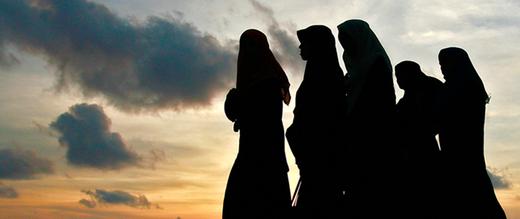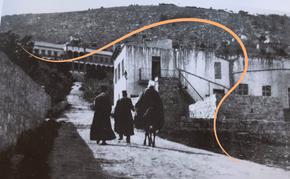The views expressed in our content reflect individual perspectives and do not represent the official views of the Baha'i Faith.
The Baha’i Faith—which began in mid-19th Century Persia—teaches the equality of women and men. Can you imagine the initial response to that principle?
Traditional, patriarchal, male-dominated societies didn’t react well, to put it mildly. But the early Baha’i women, resolute and strong, stood up for the principle of equality.
Two early spiritual giants of the Baha’i Faith—Baha’u’llah’s daughter, Bahiyyih Khanum, and his wife Asiyih Khanum, also known as Navvab—shared all of Baha’u’llah’s years of exile and imprisonment with extraordinary courage and patience. Bahiyyih Khanum provided a description of her mother’s lifelong care for the poor and oppressed to one of the early Western believers:
Even in the early years of their married life, they, my father and mother, took part as little as possible in State functions, social ceremonies, and the luxurious habits of ordinary highly-placed and wealthy families in the land of Persia; she, and her noble-hearted husband, counted these worldly pleasures meaningless, and preferred rather to occupy themselves in caring for the poor, and for all who were unhappy, or in trouble.
From our doors nobody was ever turned away; the hospitable board was spread for all comers.
Constantly the poor women came to my mother, to whom they poured out their various stories of woe, to be comforted and consoled by her loving helpfulness.
Whilst the people called my father “The Father of the Poor,” they spoke of my mother as “The Mother of Consolation. . . .” – quoted in Lady Blomfield’s The Chosen Highway, p. 40.
Bahiyyih Khanum proved herself worthy of her mother’s legacy, for she served the Faith of Baha’u’llah with a degree of devotion unsurpassed by any other woman.
Shoghi Effendi, her grand-nephew, who later became the Guardian of the Baha’i Faith, described Bahiyyih Khanum’s life of service in this manner at the time of her death:
This heavenly being, during all the turmoil of her days, did not rest for a moment, nor ever did she seek quiet and peace. From the beginning of her life, from her very childhood, she tasted sorrow’s cup; she drank down the afflictions and calamities of the earliest years of the great Cause of God. In the tumult of the Year of Hin (1851-1852 AD), as a result of the sacking and plundering of her glorious Father’s wealth and holdings, she learned the bitterness of destitution and want. Then she shared the imprisonment, the grief, the banishment of the Abha Beauty [Baha’u’llah], and in the storm which broke out in Iraq … she bore, with complete resignation and acquiescence, uncounted ordeals. She forgot herself, did without her kin, turned aside from possessions, struck off at one blow the bonds of every worldly concern; and then, like a lovelorn moth, she circled day and night about the flame of the matchless Beauty of her Lord.
In the heaven of severance, she shone like the Morning Star, fair and bright, and through her character and all her ways, she shed upon kin and stranger, upon the learned, and the lowly, the radiance of Baha’u’llah’s surpassing perfection.
. . . In captivating hearts and winning over souls, in destroying doubts and misgivings, she led the field. With the waters of her countless mercies, she brought thorny hearts to a blossoming of love from the All-Glorious, and with the influence of her pure loving-kindness, transformed the implacable, the unyielding, into impassioned lovers of the celestial Beauty’s peerless Cause. . . . – Bahiyyih Khanum, p. 26.
Many other Persian Baha’i women, in spite of the cultural restrictions of the time, performed outstanding services for the Faith. Taking to heart Baha’u’llah’s injunction to educate girls as well as boys, the believers founded outstanding schools for girls. To this day women in many countries continue to endure horrible discrimination, and almost everywhere they face abuses and humiliations of various kinds. At present Baha’is around the world are involved in many projects designed to enhance the status of women, often in collaboration with like-minded groups.
The shining record of service achieved by the Baha’i women of Persia was matched in the West, where, due to much more progressive circumstances, the early Baha’i women distinguished themselves as the leading promoters of the principles of their Faith. Their accomplishments demonstrate the truth of the following words of Abdu’l-Baha:
Know thou, O handmaid, that in the sight of [Baha’u’llah], women are accounted the same as men, and God hath created all humankind in His own image, and after His own likeness. That is, men and women alike are the revealers of His names and attributes, and from the spiritual viewpoint there is no difference between them. Whosoever draweth nearer to God, that one is the most favored, whether man or woman. How many a handmaid, ardent and devoted, hath, within the sheltering shade of Baha, proved superior to the men, and surpassed the famous of the earth. – Selections from the Writings of Abdu’l-Baha, pp. 79-80.

















Comments
Sign in or create an account
Continue with Facebookor